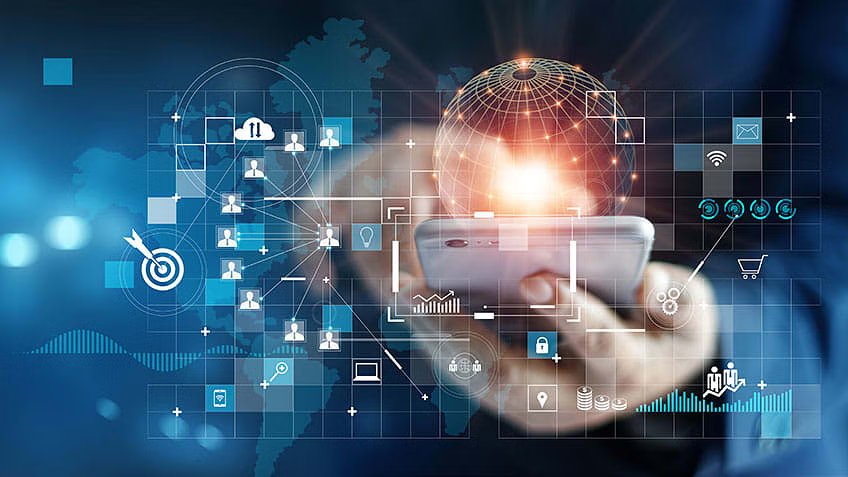Why Technology Is Important in Our Life and Its Impact on Modern Society

Technology plays a pivotal role in shaping modern society. Its influence extends beyond convenience and entertainment, fundamentally altering how we live, work, and interact with one another. From healthcare advancements to global connectivity, technology has become the backbone of human progress. Here’s a deep dive into why technology is so important in our lives.
Transforming Communication
One of the most evident ways technology has impacted our lives is by revolutionizing communication.
Gone are the days of waiting weeks for letters to reach their destination. Today, tools like email, social media platforms, and instant messaging apps allow us to connect with anyone, anywhere, in real-time. Video conferencing platforms such as Zoom and Microsoft Teams have bridged geographical gaps, enabling businesses to collaborate globally and families to stay connected during challenging times.
For example, during the COVID-19 pandemic, technology was the lifeline that kept the world running. Work-from-home arrangements and virtual classrooms became the norm, highlighting how indispensable modern communication tools are.
Enhancing Education
Education has undergone a radical transformation thanks to technology. Online learning platforms like Coursera, Khan Academy, and Udemy make knowledge accessible to people regardless of their location or financial status. Moreover, educational apps and tools provide interactive and engaging methods for students to learn at their own pace.
Technology in classrooms enhances the traditional learning experience. Smartboards, virtual reality, and augmented reality bring lessons to life, helping students grasp complex concepts more effectively. The global reach of Massive Open Online Courses (MOOCs) has democratized education, providing opportunities to millions who would otherwise lack access.
For insightful articles and tools on how technology enhances education and impacts our lives, websites like Go Tech Today offer valuable resources. They explore emerging trends and innovations that shape the future of learning.
Driving Economic Growth
Technology is a cornerstone of economic development. Innovations such as automation and artificial intelligence (AI) have drastically increased productivity across industries. Businesses leverage data analytics to make informed decisions, improving efficiency and reducing costs.
E-commerce platforms like Amazon and Alibaba have revolutionized retail, offering consumers unparalleled convenience while creating millions of jobs worldwide. Additionally, fintech advancements have redefined banking and finance, enabling digital payments, cryptocurrency trading, and crowdfunding platforms.
Startups and entrepreneurs rely heavily on technology to create innovative products and services. For example, ride-sharing apps like Uber and food delivery platforms like DoorDash wouldn’t exist without technological infrastructure.
Revolutionizing Healthcare
Healthcare has arguably benefited the most from technological advancements. From diagnostic tools like MRI and CT scanners to robotic-assisted surgeries, technology has improved the accuracy and efficiency of medical care.
Wearable devices like Fitbit and Apple Watch help individuals monitor their health in real-time, promoting preventative care. Telemedicine platforms enable patients to consult doctors remotely, making healthcare accessible to people in remote areas.
Moreover, advancements in biotechnology have led to breakthroughs in gene editing, cancer treatment, and vaccine development. The rapid creation and distribution of COVID-19 vaccines exemplify how technology can save lives on a global scale.
Facilitating Everyday Convenience
Technology simplifies daily tasks, making life more manageable and efficient. Smart home devices like Amazon Alexa and Google Nest automate routines, from adjusting the thermostat to turning off lights. GPS technology ensures we never lose our way, and mobile apps allow us to manage everything from grocery shopping to banking with a few taps.
Transportation has also been transformed. Electric vehicles, ride-sharing apps, and autonomous cars showcase how technology is reshaping mobility to be more sustainable and user-friendly.
Bridging Cultural Gaps
The internet has created a global village, breaking down cultural barriers and fostering understanding. Platforms like YouTube, TikTok, and Instagram allow creators to share their culture with a global audience, promoting diversity and inclusivity.
Language translation apps and AI-driven tools facilitate cross-cultural communication, enabling businesses and individuals to connect seamlessly. The ability to explore different cultures from the comfort of our homes enriches our worldview and fosters empathy.
Advancing Science and Exploration
Scientific discovery is driven by technology. High-powered telescopes and satellites allow us to explore the universe, while deep-sea robots uncover the mysteries of the ocean. Breakthroughs in renewable energy, quantum computing, and space exploration are paving the way for a sustainable future.
Organizations like NASA and SpaceX use cutting-edge technology to push the boundaries of human capability. For instance, SpaceX’s reusable rockets significantly reduce the cost of space travel, bringing us closer to the dream of interplanetary colonization.
Challenges and Ethical Considerations
While technology offers countless benefits, it also raises ethical and societal challenges. Issues like data privacy, cyberbullying, and the digital divide must be addressed to ensure technology serves everyone equitably.
For instance, while social media connects people, it can also contribute to misinformation and mental health issues. Governments, organizations, and individuals must work together to create policies and frameworks that balance innovation with responsibility.
Conclusion
Technology is the lifeblood of modern civilization. It drives progress, improves quality of life, and bridges gaps that once seemed insurmountable. While challenges remain, the potential for technology to create a better future is limitless. By harnessing its power responsibly, we can continue to innovate and improve the world for generations to come.





